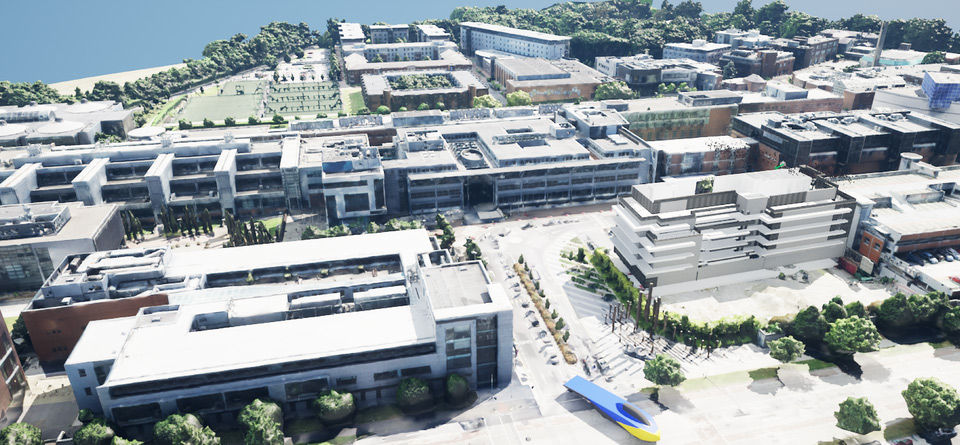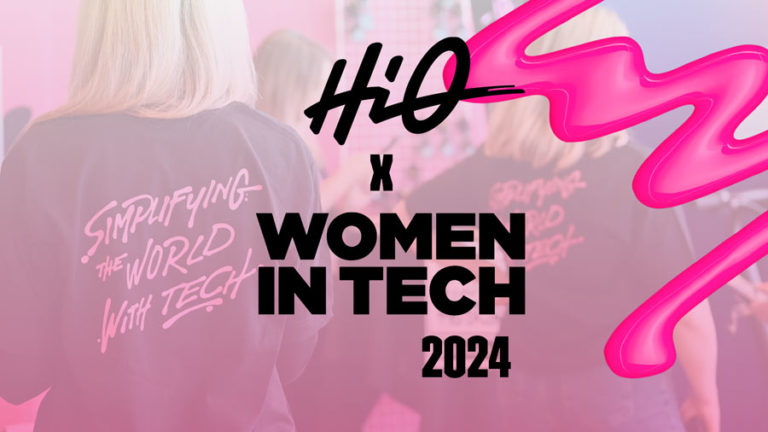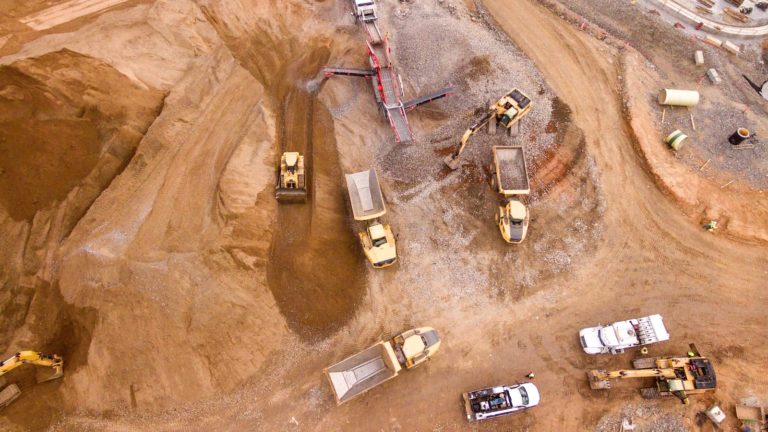Dublin City University Campus Serves as Testbed for Exploring AI and Digital Twins for Smart City Innovations

Dublin City University (DCU) is collaborating with Bentley Systems to create a campus digital twin as part of its Smart DCU initiative.
Using Bentley’s 3D reality modeling and digital twin applications facilitated data integration from multiple Internet of Things sensors and monitoring devices.
Harnessing the power of artificial intelligence analytics with Bentley’s iTwin technology provided an immersive visual environment, enabling real-time insight into on-site operations for smart campus solutions.
The campus digital twin serves as a digital city microcosm for developing intelligent, sustainable urban spaces.
A Collaborative Smart City Research Project
As part of the Smart DCU program, which is utilizing the university campus as a test site to explore and evaluate the latest advancements in smart city solutions, Dublin City University (DCU) is collaborating with Insight SFI Research Center for Data Analytics (Insight) and Bentley Systems. This collaborative initiative aims to investigate the power of artificial intelligence (AI) and immersive digital twin technology using DCU as a city microcosm for developing intelligent and sustainable urban spaces. It strives to push the boundaries of digital twins by leveraging Insight’s AI expertise and Bentley’s advanced technology applications in a secure and controlled campus environment, helping guide cities in the strategic deployment of smart city innovations. “The DCU campus [is] an ideal living laboratory for this purpose, as it replicates the essential features of a real city, including accommodations, roads, retail areas, and other urban amenities, albeit on a smaller scale,” said Kieran Mahon, Smart DCU projects facilitator at Dublin City University.
The project involves establishing AI algorithms and digital twins to simulate and visualize scenarios and use predictive analytics to improve mobility and safety on campus, as well as enable real-time monitoring of building performance, occupancy, and air quality. The goal is to gather digital insight to help the university better understand how people, traffic, and buildings interact within the built environment, making more informed decisions. Focusing on exploring AI and 3D immersive technologies to visualize complex environmental and contextual data in real time, the intelligent collaborative project aims to showcase an exemplary smart city ecosystem.
Tomas Ward, Insight Centre director at DCU said, “The combination of Bentley’s world class expertise in digital twin technologies with Insight’s world class expertise in data analytics and AI through the team at DCU unlocks potential that would not otherwise have been accessible. We are delighted to have this collaborative relationship and will continue to work closely with Bentley to create next generation solutions for smart city deployment.”
Harnessing the Power of Voluminous Siloed Data
To facilitate the smart city study, DCU deployed various Internet of Things (IoT), radar, and environmental sensors to collect and monitor data related to noise, occupancy, traffic patterns, mobility, waste collection, energy usage, and other relevant measurements to support intelligent campus functionality. In some cases, it required installing new traffic lights and infrastructure. While each sensor individually achieved its data collection and measurement goals, this information was disparate, limiting the potential for smart campus operations. “It became evident that a holistic approach was necessary to maximize the potential of these individual initiatives,” said Mahon. To establish their smart city initiatives, DCU required insight into real-time visual data for holistic decision-making.
The sheer volume of the data generated was also problematic, surpassing the human capacity for analysis. To maximize data capture and analysis potential, DCU realized that they needed to integrate this voluminous, multisourced, siloed data. “There was a need for a platform that could integrate and leverage the data from these diverse sources, creating a more efficient and comprehensive smart city solution,” said Mahon. The integrated data platform also needed to harness the power of AI, establishing a fully immersive digital twin environment to visually analyze the data and provide actionable intelligence to optimize campus operations, enhance resource allocation, and ensure sustainable growth.
Leveraging AI and Digital Twin Technologies
DCU selected Bentley’s open 3D and reality modeling technology to create a campus model integrated with IoT data, generating an immersive digital twin on the iTwin Platform. Incorporating AI into the digital twin enables a comprehensive, real-time 3D perspective of the campus, facilitating the understanding of the various factors that influence operational efficiency and overall experience of the people on campus. “It’s not just about engaging visualizations or simple gauges, it’s about identifying patterns and mismatches to drive meaningful action,” said Mahon. Using Bentley’s digital twin technology, the team built a 3D campus model and overlaid it with real-time IoT sensor data that can be used for operational efficiency, decision-making, and planning. “By utilizing the Bentley ecosystem, we were able to create a detailed 3D model of the university campus and integrate diverse IoT data feeds from various vendors in a fast, efficient manner,” said Mahon.
Working within Bentley’s iTwin Platform enabled valuable AI insight to be presented in the digital twin. Real-time AI data analysis is conducted, and the resulting insights are presented visually in an immersive digital environment where patterns and discrepancies can be detected, ultimately leading to actionable decisions. This AI-driven digital twin allows for the development of smart and adaptive systems that respond dynamically to changing conditions, optimizing energy usage and enhancing user experiences. “We believe that AI-driven solutions hold the key to unlocking a new era of urban management,” said Mahon. The collaboration with Bentley showcases the potential of digital twins for campuses and cities.
Reshaping Urban Spaces into Intelligent Sustainable Cities
Leveraging the power of advanced technologies has unlocked numerous opportunities and benefits for DCU, enhancing efficiencies, streamlining processes, and improving decision-making.
Cooperating with Bentley and Insight, DCU has harnessed the potential of data analytics, IoT, and digital twins in an interconnected virtual environment to create a smarter, more sustainable campus. DCU has validated the effectiveness of their digital twin application, achieving better mobility, connectivity enhancements, academic integration, and cost savings, improving the daily experiences of university students, staff, and visitors. “These deliverables demonstrate how Smart DCU drives collaboration, implements cutting edge technologies, improves operational efficiencies, shares knowledge, and enhances urban infrastructures to create smarter, more sustainable, and enjoyable campuses and cities,” said Mahon.
Digital twins bring data to life, enabling the identification of anomalies, emerging trends, and valuable insights into urban functioning. Visualizing live environmental data in an immersive context demonstrates the value of digital twins, balancing user well-being with resource optimization. The DCU digital twin serves as a catalyst for numerous environmental and sustainability initiatives, democratizes data visualization, and empowers agencies and individuals to implement intelligent processes, actively shaping the future of their cities. Proven to deliver tangible outcomes that are measured and assessed, this collaborative smart campus initiative has the transformative power to reshape urban spaces into intelligent, sustainable cities. “Embracing [AI and digital twin] technologies unlocks the potential for widespread understanding, collaboration, and innovation, creating a brighter future for urban environments,” said Mahon.












